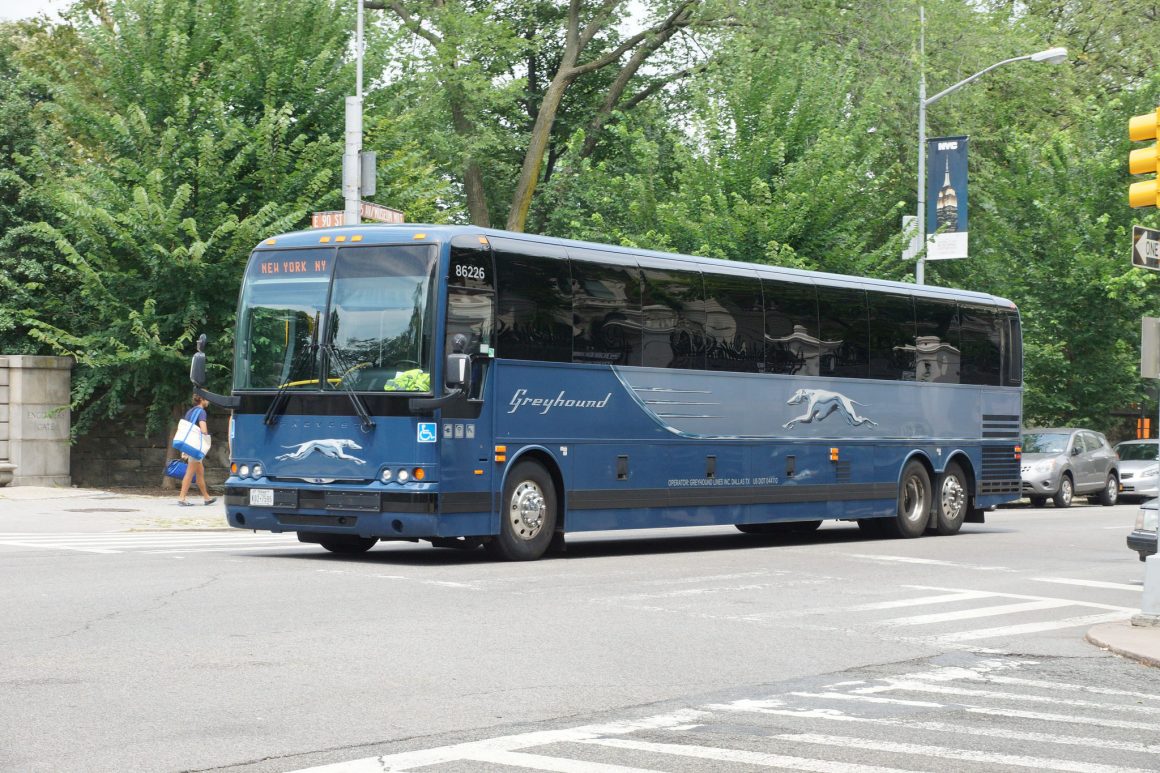
Greyhound bus closure leaves few options for rural U of C students
By Matty Hume, July 16 2018 —
On July 9, Greyhound Canada announced that it will end service on all routes in the provinces of Alberta, Saskatchewan and Manitoba, effective Oct. 31, 2018. In British Columbia, the only remaining routes will be the trek from Vancouver to Seattle, operated by the United States Greyhound Lines company and the inter-city BoltBus service, which is a subsidiary of Greyhound.
In a statement released by Greyhound Canada, the company’s senior vice-president Stuart Kendrick cited a drop in ridership over the past decade as the primary rationale for the massive closure.
“Despite best efforts over several years, ridership has dropped nearly 41 per cent across the country since 2010 within a changing and increasingly challenging transportation environment,” Kendrick said in the statement. “Simply put, we can no longer operate unsustainable routes.”
Public correspondence by Greyhound has been notably lacking since the announcement. The official Greyhound Bus Twitter account has only published six tweets since the closure: two regarding a Nitro Circus bus-jumping stunt in Las Vegas, two regarding an incident between passengers and a driver in Ohio and two general public relations-related tweets about travel destinations.
University of Calgary Students’ Union president Sagar Grewal released a statement to the Gauntlet regarding the closure’s effect on student life.
“We are aware of the recent decision by Greyhound Canada to cut its bus routes in Western Canada,” Grewal said. “Accessibility and affordability remain important priorities for the SU and we encourage any student who has been impacted by this decision to reach out to us so that we can to direct them to the best resources possible.”
At the U of C, the discontinued routes in western provinces will have an enormous effect on students from rural homes. According to data from the Office of Institutional Analysis, 24 per cent of undergraduate students reported an initial Canadian address outside of Calgary in Dec. 2017, while 26 per cent of graduate students reported the same.
Fourth-year mechanical engineering student Emily Dawson is one such student. She said the closures will have a significant impact on her remaining studies, her family and her hometown community of Trail, B.C.
“Typically, I try to go home at least four or five times a year and most of that has been Greyhound because it’s the only affordable, reliable and accessible option,” Dawson said. “It’s going to have a huge impact on me trying to go home to see my family. With the Oct. 31 cutoff, that’ll still be good for Thanksgiving but that means I can’t take a Greyhound home for Christmas, I can’t take a Greyhound home for reading break and going home next summer is not an option with Greyhound now.”
Dawson also said her sister is beginning studies in the Faculty of Kinesiology in September, meaning the Greyhound closures will be a reality for her entire degree. Further, Dawson said her situation is emblematic of many students from Trail.
“Probably a quarter of my grad class came to Calgary. A lot of people go to the Southern Alberta Institute of Technology, the Alberta College of Art and Design, U of C or Mount Royal University,” she said. “Those holiday buses were almost always packed full, which is why I’m surprised they’re cutting it because those times of year, the buses were full a month in advance. You couldn’t get a seat if you didn’t book it fast enough.”
Flights and driving are also poor replacements for the Greyhound service, despite being the only remaining options, according to Dawson.
“There’s an airport in Trail that only does one connection flight to Vancouver, which doesn’t make anything easier. There’s an airport in Castlegar and it’ll do a flight from Calgary but it’s really only reliable between May and September,” Dawson said. “It doesn’t make sense financially to own a car here and you can hope and pray that there’s a friend that can take you home but that’s all ifs and maybes.”
Students are also at a loss when it comes to the option of renting a car. Rental car companies like Enterprise and Budget require renters to be at least 21, while many students begin their studies after high school around the age of 18. Further, both companies charge a $20–30 per day ‘Young Renter Fee’ for renters between 21 and 24.
Many rural publications are also highlighting the route closure’s detriments. For example, Fort McMurray Today published an interview with April Morgan, who relies on Greyhound to deliver syringes and feeding bags for her three-year-old daughter, who requires a special formula to deliver nutrients for her abnormally fragile immune system.
“I’m freaking out. Canada Post is going to cost an arm and a leg,” Morgan said. “All of our medical supplies come through on the Greyhound.”
Greyhound bus services in Western Canada will continue as currently scheduled until all routes cease on Oct. 31. In the meantime, U of C students will have to consider other options during the duration of their studies in Calgary.
“You have to drive at this point basically or try and fly and hope it works,” Dawson said. “But as a student, I have a budget and I know adults too beyond student life that can’t afford to take a flight home.”
